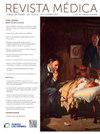Inteligencia artificial aplicada al cuidado del ataque cerebrovascular: una descripción del estado del arte y expectativas futuras
IF 0.4
Q4 MEDICINE, GENERAL & INTERNAL
引用次数: 0
Abstract
Stroke is the second leading cause of death and the first cause of disability in Chile. Given the epidemiological behavior of our country, it is projected that the number of stroke patients will continue to increase in the future, so it is essential to have new public health strategies to address this scenario of high healthcare burden. Artificial intelligence has thus become an extremely useful tool in the management of stroke in its different stages (detection, management, primary and secondary prevention, and rehabilitation). In a narrative way, the different modalities of artificial intelligence are described and, based on their foundations, applications are presented as shown in various clinical works according to the different phases of stroke. Finally, potentials and projections are explored, along with future perspectives and the associated ethical, technical, and public health policy challenges.
人工智能应用于脑卒中治疗:现状描述和未来预期
中风是智利第二大死亡原因和第一大残疾原因。鉴于我国的流行病学行为,预计未来中风患者的数量将继续增加,因此制定新的公共卫生战略来应对这种高医疗负担的情况至关重要。因此,人工智能已成为在不同阶段(检测、管理、一级和二级预防以及康复)管理中风的极其有用的工具。以叙述的方式,描述了人工智能的不同模式,并在其基础上,根据中风的不同阶段,在各种临床工作中展示了应用。最后,探讨了潜力和预测,以及未来的前景和相关的伦理、技术和公共卫生政策挑战。
本文章由计算机程序翻译,如有差异,请以英文原文为准。
求助全文
约1分钟内获得全文
求助全文
来源期刊

Revista Medica Clinica Las Condes
MEDICINE, GENERAL & INTERNAL-
CiteScore
0.80
自引率
0.00%
发文量
65
审稿时长
81 days
 求助内容:
求助内容: 应助结果提醒方式:
应助结果提醒方式:


